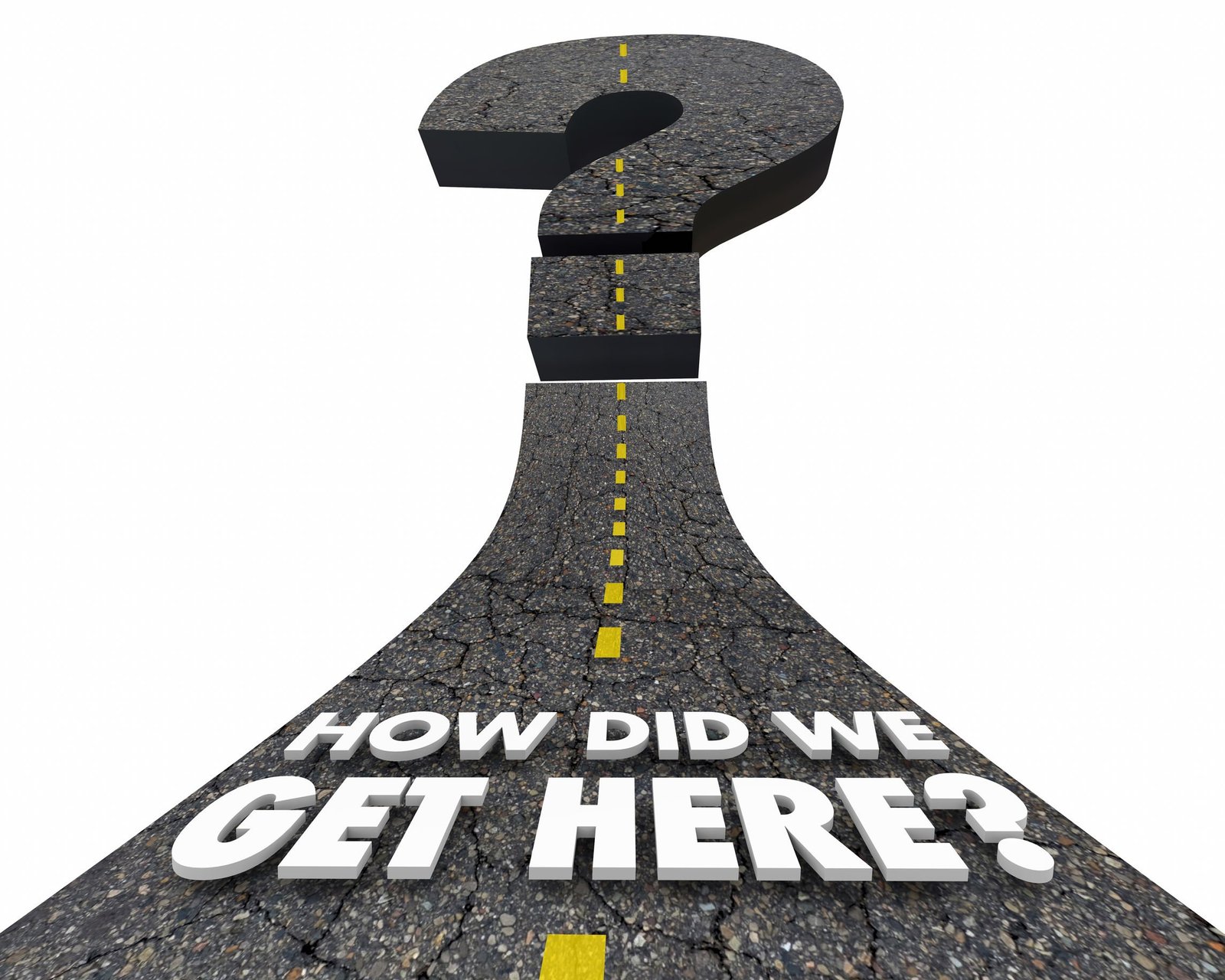Hypnotic Influence on Auto Pilot

There are a number of basic paths to influence on a large level and persuasion on a smaller level.
1) Immersion – You move into the environment (like the pandemic, like 9th grade, your new church, the new job)
2) Priming and Supraliminal Influence – All the stuff and people, all known as “objects” (yep objectification of everything because it’s all largely the same to the brain.)
3) Nonconsicous Persuasion and Influence
4) Conscious Persuasion and Influence
People don’t know why (or even remember when) they made a choice because their unconscious mind was running their brain… here’s how it happens in real life…
Today, an in depth look at how the unconscious mind operates as it relates to CHOICE and INFLUENCE of everything and everyone on those choices that people will make when you speak with them. Just implement what you learn here today in your daily communication on Zoom or live in person with friends and in business and you’ll be far more persuasive than you ever imagined.
Commercial airplanes are on autopilot over 90% of the time.
Greater than 99% of people’s choices are made without a single thought.
More than half of all attempts to persuade a person fail or succeed without anything more than a nonconscious impulse from the person you have made the request.
You have the choice of persuading their nonconscious mind or their conscious mind. The two choices are quite different from each other. I’ll show you how to navigate both.
Obviously, having a technique is largely useless without understanding which mind is attending to you how these two “minds” work and then how to best navigate the neural structure to get to your end result.
It’s also critical to design your messages for friends and business in a way that leads someone to a decision or a choice. The two are very different things. Decisions are not choices and choices are not decisions.
Take an abbreviated look at the conscious, the nonconscious and then causing people to make a CHOICE. (not a decision)
Examples of choices that are not typically decisions:
They grab a candy bar out of the pantry. 100% unconscious behavior.

They snag a beer from the fridge.
They turn left where they have turned left every day for 10 years.
They go to the same gas station they have gone to for the last 5 years.
They pick the Cheerio’s up as they walk down the cereal aisle in the store.
They take the same route to work every single day.
They arrive at the office at the same time…each day.
They say the same words to their spouse and kids that they always say.
They perform the same bedtime rituals they always do.
They yell at you when you have done nothing that was worth being scolded for.
ALL of those choices are (typically) an action that takes place with or without conscious thought.
Choices can happen consciously. People can consciously make choices that take place after decisions are made where a person thinks first and then behaves. (“I want to buy that one.”)
More often hoices are the result of the brain operating on impulse or rarely conscious thought processes, very much like the examples above.
More often choices happen and occur nonconsicously. (The person thinks nothing. They simply see the thing, pick it up -or click- and buy it.)
Let’s make this personal.
I Didn’t Realize I Do This on Instagram
Four months ago, I noticed a specific behavior I have, that never previously existed before Instagram.
It led me to researching influence on social media and particularly Instagram, Twitter, SnapChat, Reddit and Facebook where I have accounts.
Here’s my behavior which I found very unusual.

In a one month tracking I found that I check my Instagram account about twice each week. When I do, I find I “like” a bunch of images on Instagram in just a minute or two, without giving it any real thought. I see something I like, maybe it’s a book or a pretty girl, a family member or a friend. I “like” it. Impulse. Less than 1 second. Just like a cookie in the cupboard. I discovered that most of the books I liked were books I’d never write or read. It’s interesting that Instagram’s algorithms don’t show me books that are nonfiction vs. fiction.
The nonconsicous brain is moving fast liking what it likes and time doesn’t permit much interaction with humans.
Meanwhile, I only like posts on Facebook that I truly find meaningful, interesting, ironic or useful. Thought followed by decision, then choice. Facebook is clearly something I dedicate conscious attention to. I don’t agree with most posts I like. I tend to like well thought out points of view whether I agree or disagree. As far as photos, I found I liked clients, former clients, people I’ve trained, family and friends. But I also found that I don’t scroll much. If something isn’t shown to me in one of the first few posts in a feed, I will never see it.
It was a powerful reminder that I’m living a slice of life where I’m not thinking on Instagram and giving a little bit of thought on Facebook. I was surprised to find that I am on Facebook two hours per month not including Messenger where I keep up with a few friends and family often by video calls almost 6 hours per month, almost all with my kids.
Being human has it’s moments. Keeping track of what you do when you generally aren’t aware, can be fascinating.
Ultimately, almost all choices human perform are made nonconsciously. Rarely do most people think in the course of a day. Perhaps a few minutes, maybe an hour.

Even conversations are most often a sequence of triggers and reactions where people simply wait to talk and don’t actually process what the other person said.
They remember nothing the other person said.
Meanwhile decisions are typically made with more intentional conscious consideration. It’s true that people often decide to go for a walk on impulse, but more often they think about it first and the thinking is where a decision can be made. Within the thinking process people’s decisions are greatly influenced by all kinds of biases that are genetically and culturally wired in. “I don’t want to look stupid to John,” they think and then decide, nah, I’ll skip it this time around. Granted, the thinking is not thinking at anywhere near it’s finest but it is thinking albeit at a low level in the brain.
Direct Anyone’s Thinking
any direction you want to Take It
People don’t correctly remember WHY they bought that thing. They probably “remember”…something. It’s usually not correct. Memory is one of the trickiest pieces of human life. We all remember stuff. We are all sure “it” happened and that we remember why we responded the way we did. And yet, most of the time the memory is inaccurate and the reasoning is not what actually triggered the response/reaction, but, instead the reasoning was a post-experience creation, often called “rationalization.”
Why did people go protest? What about the looters, vandals, killers? They won’t remember what they were really thinking. People become easier to persuade when they are receiving information as a huge group. So check this out.
Turn the page…
Imagine someone telling the entire world to stay home. And almost everyone behaved like an obedient child (god bless the obedient 3 year old btw) learning to stay away from the highway. Parents have to become proficient at mind control at an early age or they can end up with kids with shortened lives from accidents of all kinds.
You are living in a world that is all part of what now is the biggest thought experiment in history…if you choose to be conscious and think about it. I want you to be a part of the thought experiment and feel free to not change any ideas or beliefs you previously had. I have no agenda except to help you understand how influence AND persuasion work. What works in large groups works in smaller groups. And as I’ve written at length about the larger the group the easier it is to persuade behavior..
BILLIONS of people stayed close to home in the last two months because people who work for the government told you to.

In the United States the government really can’t force you to stay home (that’s house arrest, etc.), so if you stay home and follow “rules” which aren’t laws you are doing so for at least one of the four basic reasons you saw at the beginning of the article. What’s remarkable is most people won’t remember WHY they chose to do whatever they did. They will mis-remember it.
I’ve written about the influence of Hitler and Stalin. I’ve written about the concept of a “military draft.” You’ve read about cults and corporations and the influence they wield. I’ve written about just about every aspect of persuasion, but we’ve not witnessed such a massive opportunity to learn what worked, why, and how now after all the information in the world is catalogued people still see very different pictures of what happened and what is yet to happen.
Overall people around the globe did mostly what they were told. Sure Sweden and South Dakota refused to play along (you’ll find out why these aberrations in behavior happen in the next chapter) while other places played along to perfection as far as the rules were laid out. Compliance was often coerced, typically enforced, requested or suggested at different levels of messaging and even sheer force and further loss freedom.
I’m not suggesting that you shouldn’t have stayed close to home. (“Home” means somewhere you feel safe with the one or two or three people you see come into contact with each day.) After all there is a chance that this virus could “go away.” It probably won’t but it’s possible, so the logic is reasonable IF you can stay home. Most people can’t stay home for long or they will lose their livelihood.
This really is the biggest social experiment in history.
CV doesn’t break into the top 10 causes of death for 2020, so forget all the politics and think about:
“Why did your neighbors follow the rules if they did, and if they didn’t follow the rules, why do you think they didn’t?”
People are better at guessing their neighbors and friends rationale than their own.

And WHY did you and the vast majority of people “do what they were told.” Mother Government or Fatherland said so. It’s a fascinating thought experiment. No one knew how the world would respond to something they don’t understand but with the right amounts of pointing out potential pain, having people in power offer behavioral prescriptions, you now know what people will do. it’s been AMAZING to observe this from the behavioral/persuasive messaging level.
It makes no difference what you or I think should have happened or been prescribed, if anything at all, you and I are only interested in how people behave when they are told what to do.
People don’t know why they did what they were told, they JUST… DID.
People will NOT remember why they followed some rules or directions they NEVER would have followed before. As this current experience will evolve into another set of experiences politically, socially, international mental health, intrastate tensions…well we’ve simply experienced the first two chapters of what will be a long book.
and
People’s fallacious memory of choices is easily controlled.
Media figured it out early. Show people something like planes flying into buildings, in this case people in hospital beds with messages of overflowing hospitals (which did happen in a few places in the U.S.) These things draw more attention than fires, tornadoes, hurricanes. Then point out the common enemy. You don’t need to call the person/group the enemy, simply paint most of the picture and people’s brains fill in the rest. In this case it was a virus from China. (This creates identification between large groups that will believe the common enemy did something to hurt YOU or someone you care about.
Greater than 99% of people’s choices & decisions are made without a single thought. Directing feelings and thoughts is easy.
Changing those feelings and thoughts is even easier.
In order to control thinking and direct thoughts, you simply need to understand what they are how they work.

What Are Most ‘Thoughts’ Really?
Why is Social Engineering a Sometimes Predictable Science?
Learn from the experiment that kept a world in their homes and apartments for two months.
Continue
Almost all actions anyone takes are directed by impulse at the nonconscious level of thinking.
Not many people become conscious enough to do the math of any situation and their default is their “gut” which makes them remarkably easy to manipulate.
Have you ever bought something, got it home and then never used it?
Have you ever seen people buy clothes and then never wear them? I mean most of them?
How about shoes?
How about an education?
What about … well, anything and everything?
Nonconscious impulses to buy, say yes or no, to agree or disagree, almost never come from critical thinking.
Here’s how this works at home:
1) Your brain and body take you to the cupboard, you grab a cookie, you eat it, the next day you wonder who ate it.
2) They hop in the car and drive to work or the store and have no idea what happened on the drive.
A Drive By – Intended or No?
A couple winters ago, I pulled over to the side of the road and got stuck in the snow helping another guy out of a snowbank about 8 blocks from my home.
Then the appreciative couple went on their way.
I saw the other car that sits next to my Sequoia in my garage about 30 seconds later … drive … right by me. My own family member either chose not to stop and help me (certainly possible) or they simply didn’t consciously register me as being relevant to their driving experience.
Most people would be really ticked off.
Unfortunately, I was only disappointed that I didn’t make it to the Reticular Formation in their brain. She simply had a schotoma.
She just kept on driving. She literally didn’t see what was right in front of her.
About 20 minutes later, in the 14 degree weather with a brisk wind at my side … I finally back and forthed the vehicle until I got unstuck and headed off to the store.

“You weren’t on the side of the road. I didn’t see anyone on that road!”
I know.
The brain only wakes up when it MUST attend to something that could be novel or a threat. People stuck on the side of the road in winter is a fairly common occurrence. You (don’t) see it every single day but you do see it in every big snowstorm.
The brain is busy selecting song choices in the car. The brain is lost in a story the person is watching happen in their brain. They aren’t awake in a conscious way. Yes, their brain would leave the story and the music if they were to be in danger or saw a naked person run across the street, but barring that, the brain is plenty pleased to simply head to where it needs to go and buy themselves a case of wine.
It’s not that the brain doesn’t care … although it almost never does care. It’s that it has a hierarchy of micro-goals it is doing. It’s watching for cops. It’s talking on the cell phone. Helping someone driving a $60,000 SUV get unstuck simply doesn’t wake the person up.
They get to the liquor store, fill up their case with 12 bottles, and hop in the car thinking they made all kinds of choices in what wine to buy.
What really happened in their brain…and how can YOU direct things next time around?
Identity and the Unconscious You
In order to get an entire world to comply with a request you need to create a VERY POTENT identification between leaders and citizens as well as between ALL CITIZENS.
All opinions aside, the CV experience has been the greatest social experiment in history.

Nothing like this has ever been attempted in the past and it has been discovered that it can be done. 9/11 changed the world making government control overwhelmingly powerful. CV19 makes 9/11 look like a Boy Scout attempt at control.
And what happened at the liquor store? They went to the same sections they did last time. They grab the same bottles. But then a sense of identity emerges. People who like wine like to believe drinking wine is part of their identity.
Unlike the person who ALWAYS buys the same Bud Light or Diet Coke, the wine drinker is obligated by identity to TRY at least one new wine each trip to the liquor store when buying a case.
THAT part of their identity looking to express itself (its Self) has now done so and returns to doing nothing after having said goodbye to the guy at the counter who owns the place.
Back to the car – it’s a cold afternoon and the brain is on 100% autopilot. Not a thought is happening in the brain.
So what IS happening in the brain?
Two things.
The brain is driving the car and is relatively occupied with that task.
The brain is also watching whatever story (typically sets of feelings, emotions, imaginary, conversations) is happening on the movie screen of the brain.
The nonconscious mind will have these experiences hundreds or thousands of times.
The person is not thinking about anything. At most, they are watching or participating in the movie that is running in their head.
The first trigger to break the attachment to the movie is NOT going to be appreciated by the nonconscious mind.
Do you like it when someone interrupts you while watching a movie?
Of course not.
When the person in the seat in front of me at the theater turns on their mobile phone and scrolls down his messages to find nothing … I simply think of how lucky he is to be alive. Had I not taken anger management … well … I did … and he lives.
Interruptions Cause Stress to the Unconscious Brain
You do not want to interrupt people when they are doing nothing.

Their nonconscious mind is quite active in the background and thwarting it causes STRESS.
Imagine you ask the person, “Why did you buy this wine called Sterling?”
Do they have any idea? Are people really the Walking Dead or Zombies?
Continue
The person has no idea, of course.
A subroutine of identity in the brain simply triggered into consciousness for a brief moment and squirted images of being a classy person who tries new wines.
At no time did a thought happen. There was computation. A few squirts of brain juice and a hand grabbed the bottle.
The name of the wine and the claimed location of bottling simply resonated with that part, that subroutine and IT bought the wine, not the person herself.
“I read something about it that it was really good with steak.”
It’s possible, but very unlikely that is what happened.
In a relationship, it makes no sense to ask questions like these.
Asking a person to essentially make up a reason for doing something that triggered a subroutine/part of the brain, is asking the person to come up with something out of thin air to make sense of something they don’t even remember.
Don’t They Remember?
I know you’re thinking … they MUST remember.
But they don’t.
Whatever they TELL YOU, is WHAT THEY NOW REMEMBER.
Want some evidence?
I would.
Here ya’ go …
A Sleight of Mind
Imagine this scenario.
A researcher says, “Hey Kev, who do you prefer – this photo of Scarlett Johansson or this one of Elizabeth Olsen? (Fine … some male entity …whatever.) They show you one photograph of each woman (fine … man), side by side. You MUST choose one and only one.

I say, “Um … well … Elizabeth, I guess.”
The researcher places the photo of Elizabeth in the “Liked Better” pile and the picture of Scarlett on the “Liked Less” pile.
Then the researcher asks, “Why?”
You verbally point out a couple of reasons perhaps. You explain in detail.
Then the experimenter shows you another dozen pairs of attractive women (or men if you are female)… one pair at a time.
You select from pairings of photographs and explain your reasoning. (Can you believe researchers get grants to do this!?)
Now, the researchers go back through the photos, and SECRETLY switch some of the photos from the “Liked Better” Pile to the “Liked Less” Pile.
The researchers ask you once again why you picked each of the women in the “Liked Better” pile, photo by photo.
A number of the photos are of women (men) you had NOT selected but had delegated to the “Liked Less” pile.
The vast majority of people (me in this case) never become aware of the switch … or their memory being completely inaccurate, and they go right ahead and explain why they picked each person in the pile that had originally been there and those that had been secretly switched with sleight of hand.

When you ask people, “WHY DO YOU LIKE THIS BETTER THAN THAT?” they give you an answer, even if that wasn’t what they originally chose.
The fact that the photos were in the pile is enough obvious certainty to their brain that it was indeed one of their selections.
Of course, many were switched. And people continued to explain why Scarlett was liked better than Eliza …!
Amazing?
This is the first real research EVER done to show this astounding nuance in how people explain their choices.
The implications for influencing decisions and behavior?
Ground breaking …
And it’s not magic, but it’s impressive and you can do it. Just follow the research template here.
Continue
Persuading the Human Brain
The human brain can be very easy to persuade even AFTER someone has explained something they didn’t originally agree with or made a different choice earlier. We don’t remember what we chose, assume we did, and again, explain a COMPLETELY DIFFERENT set of reasons about the choice of Scarlett instead of Elizabeth!
For years you’ve read in Coffee the research that shows that people have no idea:
- WHY they do what they do.
- They have no idea WHY they said what they said.
- They have no idea WHY they bought what they bought.
- They have no idea WHAT THEY WILL BUY … though they will TELL YOU … and be wrong.
- People’s memory is so fallible and bad that it is easy to argue or fight about what happened even MINUTES ago.
- False memory is so easily implanted that forgetting happens in minutes.
Talk about sleight of mind.
Almost to a person, people simply don’t remember their choices, assuming that because they EXPLAINED to you why they liked Scarlett(that’s why she’s in the “Liked Better” pile, the mind assumes). The person explains something that they never originally THOUGHT to be true …
Watch how the original research played out from their own report.
Pretty amazing …
When evaluating facial attractiveness, participants may fail to notice a radical change to the outcome of their choice, according to a study by researchers at Lund University, Sweden, and New York University. Equally surprising, the study shows that participants may produce confabulatory reports when asked to describe the reasons behind their choices. The findings appeared in the October issue of Science.
The authors on this paper are Petter Johansson, a graduate student; Lars Hall, a researcher; Sverker Sikstrom, an assistant professor; all from Lund University Cognitive Science; and Andreas Olsson, a graduate student in NYU’s Department of Psychology.
Researchers showed picture-pairs of female faces to the participants and asked them to choose which face in each pair they found most attractive. In addition, immediately after their choice, they were asked to verbally describe the reasons for choosing the way they did. Unknown to the participants, on certain trials, a card magic trick was used to secretly exchange one face for the other. Thus, on these trials, the outcome of the choice became the opposite of what they intended.
What other secret was uncovered?
Choice Blindness
The researchers measured whether the participants noticed that something went wrong with their choice, both concurrently, during the experimental task, and retrospectively through a post-experimental interview. Less than 10% of all manipulations were detected immediately by the participants, and counting all forms of detection no more than a fifth of all manipulated trials were exposed.
The researchers call this effect choice blindness.
[In English that roughly translates to: 80% of the time people were explaining why they picked Scarlett … when they really picked Eliza! They had no idea what they had just done and made up reasons out of thin air to describe what they didn’t do … as if they had done it!]
Theories about decision-making generally assume that we recognize when our intentions and the outcome of our choices do not match up, but this study shows that this assumption is not necessarily correct. By shedding new light on the links between intentions and outcomes, these results challenge both current theories of decision making, and common sense notions of choice and self-knowledge.
The researchers also sought to understand if the verbal reports given by the participants differed between the faces that they actually chose, and the ones that they ended up with in a manipulated trial.
“Based on common sense alone one might suspect that the reports given for normal trials and for the manipulated trials would differ in many ways”, said Hall. “After all, revealing the reasons behind a choice is something we very often do in everyday life. But revealing the reasons behind a choice we did not make is a very strange thing indeed.”
 However, using a variety of measures, the researchers found that the two types of reports were remarkably similar. ‘When asked to motivate their choices, the participants delivered their verbal reports with the same confidence, and with the same level of detail and emotionality for the faces that were not chosen, as for the ones that were actually chosen’ Johansson said.
However, using a variety of measures, the researchers found that the two types of reports were remarkably similar. ‘When asked to motivate their choices, the participants delivered their verbal reports with the same confidence, and with the same level of detail and emotionality for the faces that were not chosen, as for the ones that were actually chosen’ Johansson said.
[You read it right. Not only did they make up stuff out of thin air, but they were CERTAIN of their stuff as being TRUE and REAL.]
Despite the intimate familiarity we have with everyday decision making, it is very difficult to determine what we can know about this process from the ‘inside’, by reflection and introspection. A great barrier for scientific research in this domain is the nature of subjectivity. How can researchers ever verify the reports of the participants involved, when they have no means of challenging them? But by using choice blindness as an instrument, the researchers were able to ‘get between’ the decisions of the participants and the outcomes they were presented with.
“Our experiment introduces an entirely novel methodology that can be used to investigate choice and introspection” Hall said. ”This may lead to an improved understanding of the processes behind both truthful and confabulatory reports.’
And that’s not all!
But Wait … There’s More!
So how do you optimize the fact that they are ON AUTOPILOT?
A new study included 65,000 subjects on airplanes. They were not aware their actions were being observed.
Can the Person Next to You Control What You Buy?
 About 1/6 of travelers buy something when offered in the plane. (Headphones, a movie, snacks)
About 1/6 of travelers buy something when offered in the plane. (Headphones, a movie, snacks)
But what happens when a traveler is sitting cheek to cheek with another traveler? Almost always, this is someone they have never seen before in their life and they probably don’t like them … not one bit.
The person sitting next to the guy/girl who just go their credit card swiped for a movie or similar became 30% more likely to do the same for themselves!
The idea virus.
Obviously when it comes to you, your product, your service, you want the perception of the individual you are persuading to see you as having recently been bought … by someone else.
Legend Point: Nothing sells like seeing someone else buying.
And they will NEVER admit and may never even know that it was because the guy next to them paid to watch a movie …
What’s the first big lesson to take home from the CV Experiment?
You only get the world to comply when you see the Rolodex in each mind complying.
Reserve your spot now!

Kevin Hogan Personal Appearances, Classes, Seminars & E-Courses
See Kevin Hogan “Live” in person, or participate in an online E-course with personal attention from Kevin Hogan! Attend an online webinar!
See All Upcoming E-courses and Events





















